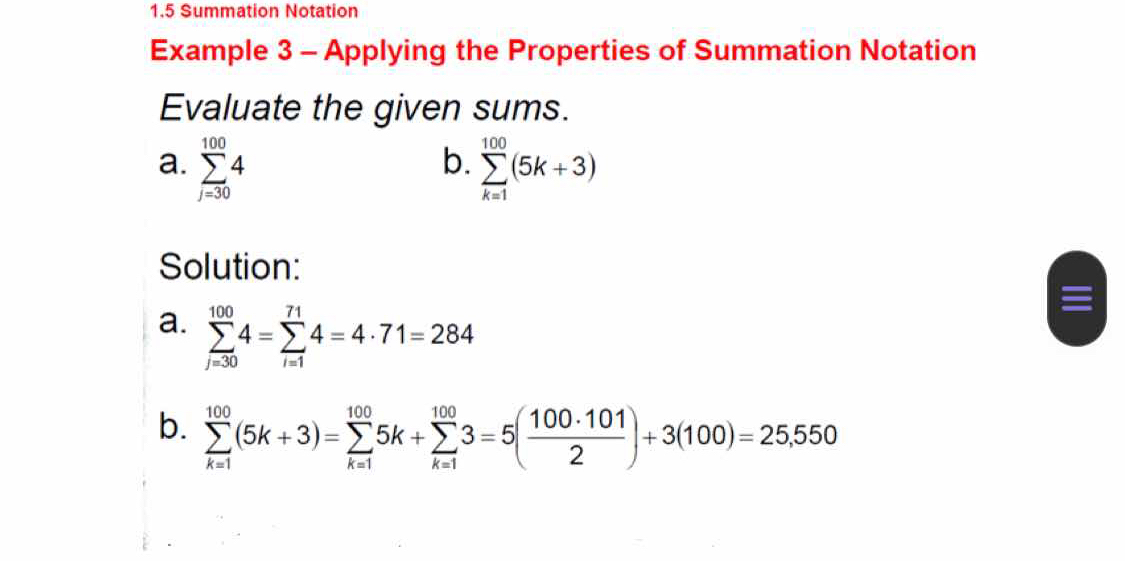Evaluate the given sums: a. Σ from j=30 to 100 of 4. b. Σ from k=1 to 100 of (5k + 3).

Understand the Problem
The question is asking to evaluate two summations: (a) the sum of a constant value (4) from j=30 to j=100, and (b) the sum of the expression (5k + 3) from k=1 to k=100. The focus is on applying properties of summation notation to find the results of these sums.
Answer
a. \(284\), b. \(25550\)
Answer for screen readers
The answers are:
a. (284)
b. (25550)
Steps to Solve
- Evaluate the first sum
To calculate the sum of the constant value (4) from (j=30) to (j=100):
The number of terms can be found by:
$$100 - 30 + 1 = 71$$
So the sum is:
$$\sum_{j=30}^{100} 4 = 4 \cdot 71 = 284$$
- Evaluate the second sum
Now, we evaluate the sum of the expression (5k + 3) from (k=1) to (k=100).
This can be broken down into two parts:
$$\sum_{k=1}^{100} (5k + 3) = \sum_{k=1}^{100} 5k + \sum_{k=1}^{100} 3$$
- Calculating the first part
First, calculate (\sum_{k=1}^{100} 5k):
Using the formula for the sum of the first (n) integers:
$$\sum_{k=1}^{n} k = \frac{n(n+1)}{2}$$
We apply this for (n=100):
$$\sum_{k=1}^{100} k = \frac{100(100 + 1)}{2} = \frac{100 \cdot 101}{2} = 5050$$
Thus,
$$\sum_{k=1}^{100} 5k = 5 \cdot 5050 = 25250$$
- Calculating the second part
Next, calculate (\sum_{k=1}^{100} 3):
This is simply (3) multiplied by the number of terms:
$$\sum_{k=1}^{100} 3 = 3 \cdot 100 = 300$$
- Combine both parts
Now combine the results of the two parts:
$$\sum_{k=1}^{100} (5k + 3) = 25250 + 300 = 25550$$
The answers are:
a. (284)
b. (25550)
More Information
The first summation represents the total contribution of a constant value over a range of indices, while the second summation utilizes properties of linearity in sums, allowing the separation of terms for simpler evaluation.
Tips
- Forgetting to count the number of terms correctly in the constant sum.
- Misapplying the formula for the sum of integers, especially missing areas like (n+1).
- Combining terms incorrectly in the second summation.
AI-generated content may contain errors. Please verify critical information